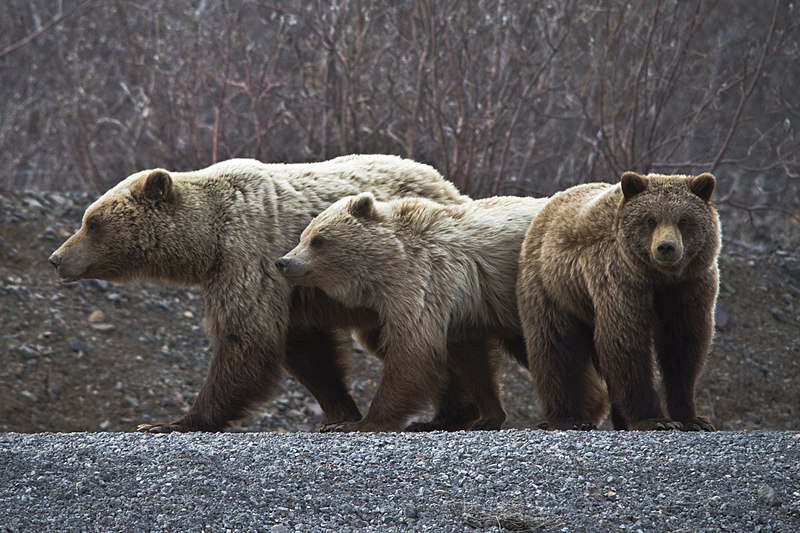Trump Administration Again Slashes Endangered Species Act Protections to Benefit Polluters Economic interests to Outweigh Science in Habitat Decisions

NPS Photo/Jacob W. Frank; Denali National Park and Preserve; Grizzly Bears
The U.S. Fish and Wildlife Service (FWS) finalized a rule change that alters the process for designating critical habitat under the Endangered Species Act. This will weaken the ability to designate critical habitat for at-risk species and prioritize economics over science. The rule gives increased weight in decision making to developers to prioritize oil and gas development and other industries over safeguarding and restoring habitat for endangered species.
The Trump administration tomorrow is expected to finalize a rule to circumvent establishing habitat protections for endangered and threatened species. The rule follows a string of other efforts and rollbacks to weaken the Endangered Species Act under the Trump administration.
In the latest attack on endangered species, the Trump administration today finalized a rule stripping protections from gray wolves across most of the lower 48 states. The politically-driven move will turn wolf management over to historically hostile state agencies
WASHINGTON, D.C— The Trump administration today announced a new proposed rule to circumvent establishing habitat protections for endangered species. The rule follows a string of other proposals to weaken the Endangered Species Act, including another rule proposed just last month putting additional restrictions on designation of critical habitat.
WASHINGTON,D.C. --- The Trump administration today released a new proposal that would severely limit critical habitat protections for endangered wildlife. The proposal runs counter to warnings of scientists around the world who have identified habitat loss as the single largest driver of species imperilment and a major contributing factor to pandemics, such as COVID-19. The new proposed definition of “habitat” seeks to prevent former habitat from being designated as critical habitat, even when that habitat has irreplaceable characteristics vital to the recovery of a species. It would also prevent areas that will be the last refuge for species harmed by climate change from being designated as critical habitat until it’s too late.
SAN FRANCISCO--The 9th Circuit Court of Appeals today upheld the Montana District Court’s opinion that reinstated Endangered Species Act protections for the Yellowstone region’s grizzly bear population. The decision spares the grizzlies from plans for trophy hunts in the states of Wyoming and Idaho. Earthjustice, representing the Northern Cheyenne Tribe, Sierra Club, Center for Biological Diversity and National Parks Conservation Association, argued for restoring protections to Yellowstone grizzly bears.
Washington, DC— The Sierra Club secured over 14,437 documents from the Department of the Interior through the Freedom of Information Act (FOIA), including call logs, meetings and email communications that are now available for the public. Find and search the documents online here. Included in the lowlights are:
New Orleans, LA -- Today, environmental groups filed a lawsuit challenging the U.S. Fish and Wildlife Service’s (FWS) approval of the massive Annova LNG fracked gas export terminal proposed for southern Texas.
Helena, MT— Last week, the Montana Fish, Wildlife, and Parks Department announced that the U.S. Department of the Interior has approved paintballing by the public to haze grizzly bears, a threatened species protected under the Endangered Species Act.
WASHINGTON— A federal judge on Tuesday overturned a decision by the U.S. Fish and Wildlife Service to protect northern long-eared bats as threatened rather than endangered under the Endangered Species Act.
Money and Computing, News and Issues, History, Culture Watch, Money, Issues, Politics, Government, Media, Grandparenting, Senior Women Web, Articles, Sightings, What's New







